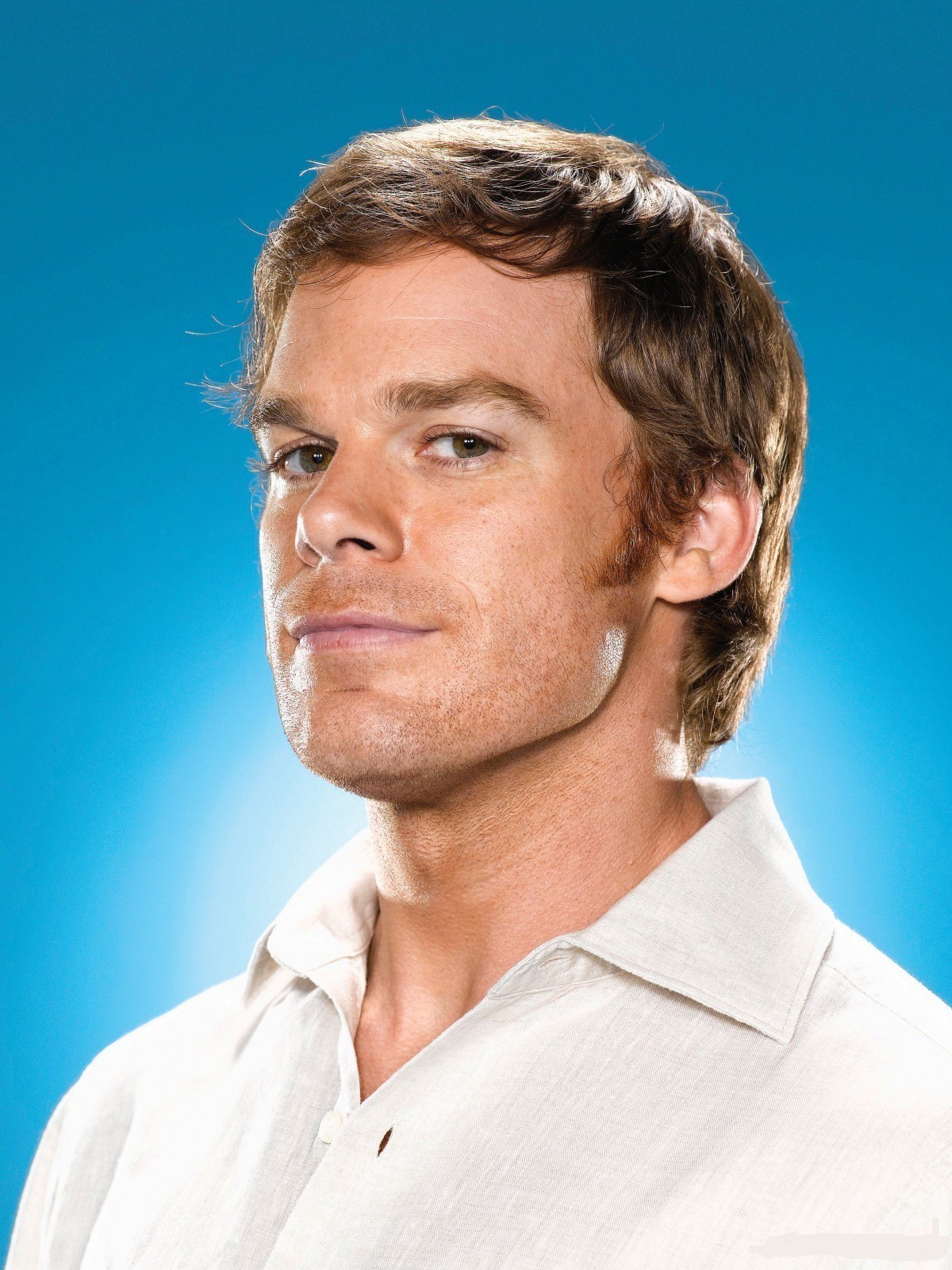The Intriguing Duality Of Dexter Morgan: A Cultural Icon
What is it about Dexter Morgan that simultaneously repels and enthralls audiences? The answer lies in the intricate duality of his character, making him one of television's most unforgettable figures. The Showtime series "Dexter," which premiered in 2006, introduced viewers to a forensic blood spatter analyst by day and a vigilante serial killer by night. The premise alone was enough to pique interest, but it was the nuanced portrayal of this complex character that truly captivated audiences. This article explores the intricacies of Dexter Morgan, delving into his physical attributes, cultural impact, and the critical reception of the show that brought him to life.
Dexter Morgan, created by author Jeff Lindsay, first appeared in the "Dexter" book series before being adapted into the popular television show. His unique profession as a blood spatter analyst for the Miami Metro Police Department served as the perfect cover for his nocturnal activities. This juxtaposition of normalcy and depravity became a key element of the character's enduring appeal. Beyond his professional life, Dexter's personal struggles and moral dilemmas resonated with audiences, sparking discussions about the nature of good and evil, justice, and morality.
| Attribute | Details |
|---|---|
| Name | Dexter Morgan |
| Occupation | Forensic Blood Spatter Analyst (Fictional) |
| Height | 6 feet 1 inch (185 cm) |
| Birth Date | Unknown (Fictional character) |
| Place of Origin | Miami, Florida |
| Creator | Jeff Lindsay |
| Played By | Michael C. Hall |
| Show | Dexter (Showtime) |
| Link | IMDB - Dexter |
Beyond the psychological complexities, Dexter Morgan's physical attributes play a crucial role in shaping his character. Standing at 6 feet 1 inch (185 cm), his height is one of his most immediately noticeable features. This stature contributes significantly to his presence, allowing him to command attention in both his professional and personal life. His height lends an air of authority and control, enhancing his ability to blend seamlessly into the world around him. This commanding presence is essential in his role as a forensic analyst, where managing potentially volatile situations is a daily occurrence.
- Nancy Siegel The Disturbing Case Of Murder Fraud Explained
- Unveiling The Power Of The Ancients In Contemporary Forms
To fully understand Dexter Morgan, one must delve into the layers of his character. Shaped by a traumatic childhood, Dexter harbors a "Dark Passenger," an insatiable urge to kill. This compulsion is tempered by a code of ethics instilled in him by his adoptive father, Harry Morgan, a police officer. Harry recognized Dexter's dark tendencies and taught him to channel his urges, directing them toward those who had escaped justice. This code governs Dexter's actions, providing a semblance of order in his chaotic world. The core of Dexter's character is built on the concept of duality: by day, he is a seemingly ordinary and amiable individual, well-liked by his colleagues. By night, he becomes a calculating and methodical serial killer, carefully planning and executing his "work." This constant balancing act fuels the narrative of the show, raising questions about morality, justice, and the very nature of humanity.
Since its debut, "Dexter" has left an indelible mark on popular culture. The character of Dexter Morgan has become a significant symbol of the anti-hero archetype, a character type that has grown increasingly popular in modern television and film. The show's success, driven by its compelling narrative and the complexity of its protagonist, paved the way for other shows and films exploring similar themes. The morally ambiguous character, often engaging in questionable acts for a perceived greater good, has found a receptive audience. This shift toward anti-heroes has led to renewed interest in characters who operate outside traditional boundaries of good and evil, deeper examination of the gray areas of morality, and a willingness to explore the motivations and inner lives of characters considered flawed by societal standards.
The cultural impact of Dexter Morgan extends beyond the show itself. The character's duality resonates with audiences, challenging traditional notions of right and wrong. In a world where media often portrays heroes as flawless and villains as irredeemable, Dexter's complexity offers a refreshing perspective. The character's influence can be seen in other popular anti-heroes, such as Tony Soprano from "The Sopranos," Walter White from "Breaking Bad," and even modern interpretations of iconic characters like Batman and Spider-Man. These characters share a common thread: their humanity. They are flawed, complex, and often morally ambiguous, yet audiences find themselves drawn to their inner struggles and the choices they make.
- Breaking Fernando Amaya Charged In Fatal Shooting At 7500 Cook Road
- Damian Payne Career Family Tributes Latest Updates
The critical reception of "Dexter" was overwhelmingly positive. The show won numerous awards, including Golden Globes and Emmy Awards. Critics praised Michael C. Hall's performance, the show's innovative premise, and the compelling storytelling. The critical response focused on the show's ability to keep viewers engaged and invested in a character who, by all accounts, should be abhorrent. The critical praise for the show's writing and production design further solidified its status as a landmark television achievement. The show's dedicated fanbase, drawn in by the unique premise and compelling storytelling, contributed to the enduring popularity of Dexter Morgan. Viewers were challenged to reconsider their perceptions of good and evil, sparking discussions about morality and justice.
Connections to other famous people and celebrities can also be drawn from Dexter's character. For instance, the show's exploration of trauma and its effects on behavior echoes the real-life struggles of individuals like Lady Gaga, who has spoken openly about her own experiences with trauma. Similarly, the show's themes of duality and hidden identities resonate with celebrities like Eddie Murphy, whose career has been defined by his ability to embody multiple personas. The impact of "Dexter" on society extends beyond entertainment, encouraging viewers to reflect on the complexities of human nature and the moral dilemmas we face daily.
The industry trend of embracing anti-heroes and morally ambiguous characters reflects a broader shift in storytelling. Audiences are increasingly drawn to characters who defy traditional archetypes, offering a more realistic portrayal of human nature. This trend can be seen in various forms of media, from television shows like "The Wire" and "Mad Men" to films like "Joker" and "Parasite." These works challenge viewers to confront uncomfortable truths about society, justice, and morality. Dexter Morgan's character aligns with this trend, offering a nuanced exploration of the human condition that resonates with audiences worldwide.
In conclusion, Dexter Morgan's enduring appeal lies in his intricate duality and the complex world he inhabits. The character's influence on popular culture, his impact on the television landscape, and the critical acclaim he has garnered all contribute to his status as a cultural icon. As audiences continue to grapple with questions of morality and justice, Dexter Morgan remains a powerful reminder of the complexities of human nature and the gray areas that define our lives. His story continues to resonate with viewers, inviting them to explore the depths of their own humanity and the choices they make.



Detail Author:
- Name : Prof. Muriel Cassin Jr.
- Username : janie.kshlerin
- Email : alexandre.blanda@braun.org
- Birthdate : 1972-06-06
- Address : 9663 Hermann Summit Chelsiefurt, DC 22664-9231
- Phone : (678) 819-3832
- Company : Collier and Sons
- Job : Air Crew Member
- Bio : Sed deleniti aut sit voluptatum illum. Consectetur sed veniam ut corporis. Enim autem veniam sunt labore accusamus quidem molestiae. Ut veniam porro nihil cumque atque impedit.
Socials
instagram:
- url : https://instagram.com/predovicd
- username : predovicd
- bio : Ea animi vel dolorum corrupti. Et deleniti delectus dolore dolores.
- followers : 6588
- following : 1641
tiktok:
- url : https://tiktok.com/@denis2717
- username : denis2717
- bio : Ipsum ea et illum voluptas a commodi.
- followers : 4420
- following : 1009